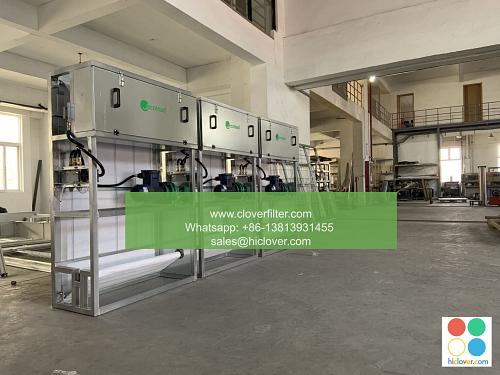* Impact on indoor air quality and HVAC efficiency

Indoor air quality and HVAC (heating, ventilation, and air conditioning) efficiency are crucial aspects of a building’s overall performance. The quality of indoor air can significantly impact the health, comfort, and productivity of occupants, while HVAC efficiency affects energy consumption and operating costs. In this article, we will discuss the impact of various factors on indoor air quality and HVAC efficiency, highlighting various application areas and key words such as air filtration, ventilation rates, thermal comfort, and energy efficiency.
Factors Affecting Indoor Air Quality
Several factors can affect indoor air quality, including pollutant sources, ventilation rates, and air filtration systems. Pollutant sources such as volatile organic compounds (VOCs), particulate matter (PM), and microorganisms can emanate from various sources, including building materials, furnishings, and occupancy activities. Ventilation rates, which refer to the amount of outdoor air introduced into a building, can also significantly impact indoor air quality. Air filtration systems, such as HEPA filters and activated carbon filters, can help remove pollutants from the air, improving indoor air quality.
Impact on HVAC Efficiency
HVAC efficiency is affected by various factors, including system design, operating conditions, and maintenance practices. Air-side economizers, which use outdoor air to cool or heat a building, can significantly improve HVAC efficiency. Variable air volume (VAV) systems, which adjust airflow to match changing cooling or heating demands, can also enhance HVAC efficiency. Regular filter maintenance and coil cleaning are essential to ensure optimal HVAC performance and efficiency.
Application Areas and Key Words
Indoor air quality and HVAC efficiency are critical in various application areas, including:
* Commercial buildings: Offices, retail spaces, and restaurants require high-quality indoor air and efficient HVAC systems to ensure occupant comfort and productivity.
* Residential buildings: Homes and apartments need effective air filtration and ventilation systems to maintain healthy indoor air quality.
* Healthcare facilities: Hospitals, clinics, and nursing homes require stringent indoor air quality and HVAC standards to prevent the spread of infections and ensure patient comfort.
* Industrial facilities: Manufacturing plants, warehouses, and laboratories need efficient HVAC systems and air filtration systems to maintain a safe and healthy work environment.
Some key words related to indoor air quality and HVAC efficiency include:
* Air quality monitoring
* Indoor air pollution
* Ventilation system design
* Energy-efficient HVAC systems
* Sustainable building practices
Conclusion
In conclusion, indoor air quality and HVAC efficiency are essential aspects of a building’s overall performance. By understanding the factors that affect indoor air quality and HVAC efficiency, building owners and operators can take steps to improve indoor air quality, reduce energy consumption, and enhance occupant comfort and productivity. By highlighting various application areas and key words, we can better appreciate the importance of air filtration, ventilation rates, thermal comfort, and energy efficiency in maintaining healthy and efficient buildings. You’ve given me a prompt, but it doesn’t contain a question or topic for me to address. Can you please provide more details or clarify what you would like to discuss? I’m here to help and provide information on any subject you’d like. What’s on your mind?

